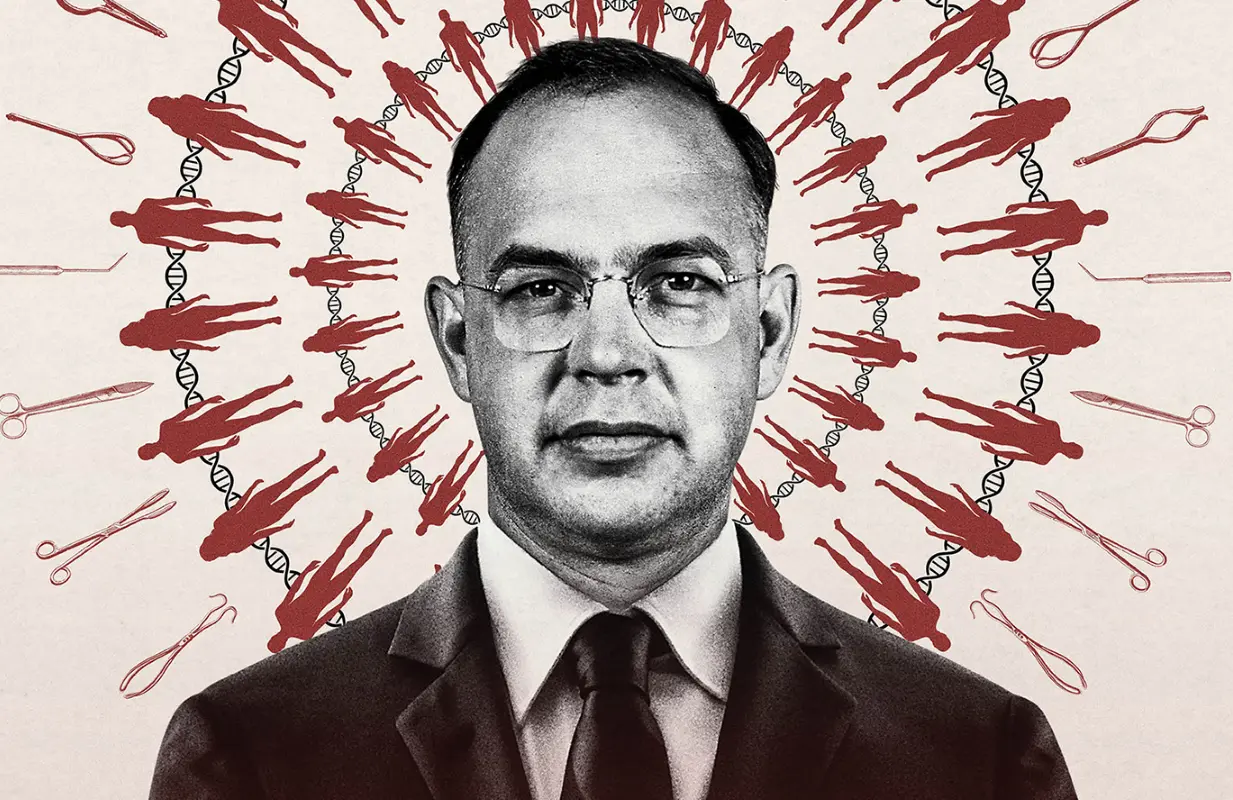HBO's Fascinating, Horrifying Baby God Should've Been a Docuseries
-
 Baby God (HBO)
Baby God (HBO)The editor-in-chief of the daily newsletter Best Evidence, Sarah D. Bunting knows a thing or two about true crime. Her weekly column here on Primetimer is dedicated to all things true crime TV.
Over a period of decades, Las Vegas fertility doctor Quincy Fortier inseminated hundreds of patients using his own sperm — without, it probably goes without saying, their knowledge or consent. But this is only the first gross violation chronicled in Baby God, director Hannah Olson's fascinating and horrifying first feature-length documentary.
At the center of this story are Fortier's (many) victims, and much like Showtime's propulsive recent "rom-con" docuseries Love Fraud, Baby God shows real compassion for them, no matter how pitiable or deluded they might seem to some viewers. (Love Fraud's directors, Heidi Ewing and Rachel Grady, are among those on the executive producer roster for this project.) As Baby God unfolds, we learn that Fortier sexually assaulted many of the children he raised; that he saw patients at his home, using his living room as a waiting area; and that he found it appropriate to administer gynecological exams to at least two of his daughters, whom he adopted when he was 55. Those daughters participate in the film, and even as Olson presses them on their evolving reactions to Fortier's misdeeds, she doesn't come across as trying to "gotcha" them. She's trying, I think, to illustrate something that Fortier's crimes tell us about the nature of family, and parenting, and what comprises a "normal" home life.
The problem with Baby God is that it needs six to eight episodes to unpack all of the issues it raises, starting with how much times have changed since Fortier started committing what he must have originally assumed was an undetectable crime. Among the other topics the film touches on are the general ethics of DNA registries, and contacting biological relatives who may not want any part of your genealogy project and the crimes it might uncover; how to emotionally navigate ugly family history, particularly with aging parents; and even the different kinds of pressure women felt about childbearing and their choices in the 1960s. Unfortunately, with a run time under 80 minutes, Baby God doesn't have time to delve deeply into any of this. Nor is it able to explore a truly gothic tale buried in old legal transcripts that involves other half-siblings and a possible cover-up, which I won't spoil here.
Baby God is still well worth a watch. For one thing, while it isn't able to devote as much time to various aspects of the intertwining narratives as I would have liked, that also means Olson doesn't do a lot of hand-holding — which leads me to the other thing: Olson knows how to do this. Yes, she gets becalmed by some "flavorful" filler occasionally, but it's evident she knows how to ask questions, structure stories, and get the people at the center of a painful and disturbing series of events to trust her. Baby God's topic reflects very real fears about consent and the trust we place in medical professionals, as the success of various Wondery podcasts about serially incompetent doctors can attest. With Olson currently at work on another project for HBO, here's hoping network higher-ups give her the room to let the case dictate the form that her storytelling takes.
Baby God airs on HBO December 2 at 9:00 PM ET.
Sarah D. Bunting co-founded Television Without Pity, and her work has appeared in Glamour and New York, and on MSNBC, NPR's Monkey See blog, MLB.com, and Yahoo!. Find her at her true-crime newsletter, Best Evidence, and on TV podcasts Extra Hot Great and Again With This.
TOPICS: Baby God, HBO, Hannah Olson, Heidi Ewing, Quincy Fortier, Rachel Grady, True Crime
- Facebook and Flimsy Beliefs Lead to Catastrophe in HBO's Love Has Won Documentary
- HBO's Baby God documentary is refreshing because it corrects pop-culture's tendency to treat fertility fraud lightly
- HBO's Baby God documentary was inspired by LL Cool J's appearance on Finding Your Roots
- Hein’s Picks: This Week in Holiday TV